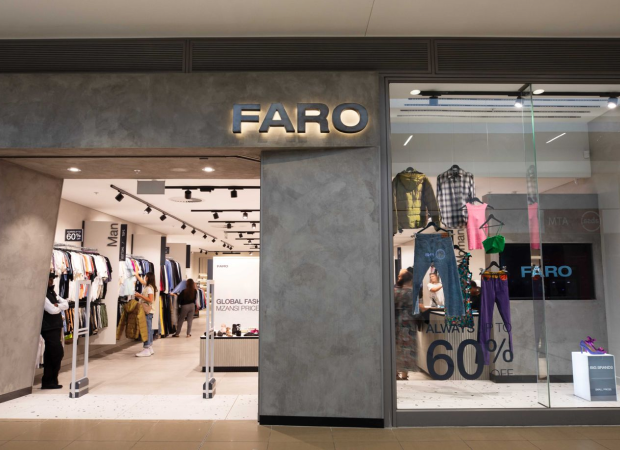The value of excess items in the fashion industry – a whopping $140-billion or R2.5-trillion in lost sales – is a stark reminder of the sector’s environmental and economic challenges. In South Africa, the fashion industry is also grappling with a staggering waste problem, driven in large part by the rapid growth of fast fashion.
In terms of its carbon trail, the fashion industry’s environmental consequences are severe, with the production of 80 to 150 billion garments per year contributing to 10% of global carbon emissions, surpassing those from international flights and maritime shipping combined.
The industry’s carbon footprint is expected to increase 50% by 2030, with the textile sector using about 93 billion cubic metres of water per year, equivalent to the consumption needs of five million people.
Innovative AI solution
Amid this chaos, South African start-up Faro, which was founded in 2023, is tackling the issue of overstocking and returns by using technology and a specialised supply chain. The company enables brands to offload obsolete inventory through shops in non-core markets, ensuring complete traceability throughout the process.
In fewer than three years the business has rapidly expanded, with shops in the Liberty Promenade, N1 City Mall, The Glen Shopping Centre, Fourways Mall and Bayside Mall, and plans to reach 1,000 stores across South Africa and other emerging markets.
Faro partners with name brands such as G-Star, Zara, Asos, Levi’s, Jack & Jones and Steve Madden, sourcing last-season stock at a fraction of the original price and passing these savings on to customers.
“We saw an opportunity to connect surplus, high-quality fashion from global brands with South African consumers at unmatched prices. With a growing demand for premium fashion at accessible rates and international brands seeking alternative distribution channels, South Africa was the ideal market to launch in,” Faro cofounder Amber Penney told Daily Maverick.
“Faro provides a solution for both brands and customers, giving unsold garments a second life while providing customers with access to premium fashion at accessible prices, in an elevated retail space,” Penney said.
Technology at the forefront
Faro’s inventory IQ AI platform captures detailed data on every garment, laying the groundwork for its IQ operating system. This approach enables several key benefits:
- Buying IQ: Sales data and garment attributes predict stock-keeping unit (SKU) success, ensuring informed purchasing decisions;
- Pricing IQ: Dynamic pricing adjusts to seasonality and demand for each SKU, maximising economic potential;
- Planning IQ: Store and customer analysis ensures the right products are sent to the right stores; and
- Marketing IQ: A WhatsApp-powered social relationship management tool delivers personalised recommendations and seamless reserve-and-collect options, driving foot traffic and improving sales throughput rates.
Consumer behaviour
Speaking to AFI Insider, the official blog of African Fashion International, Vishakha Chopra, project leader at global management consulting firm Boston Consulting Group, noted that “technology is influencing consumer behaviour globally, and we are not impervious to it in Africa”.
“Today, mobile penetration in Africa is close to 50%, and young mobile-first Africans are increasingly indulging in mobile money purchases, e-commerce and social commerce,” Chopra said.
For consumers like Entle Mcasi, a postgraduate student at the Cape Peninsula University of Technology, affordability and variety are key.
“I am always shopping for gym clothes at local stores and I look for more affordable clothing, especially bundled offers both online and in-store,” said Mcasi.
Boipelo Tladi, an undergraduate student at the Central University of Technology in the Free State, appreciates the convenience and affordability of online shopping.
“Buying at online stores is very convenient because you just browse and click on what you like in the comfort of your room. They are cheap and they sell trendy stuff.” DM
This story first appeared in our weekly Daily Maverick 168 newspaper, which is available countrywide for R35.






